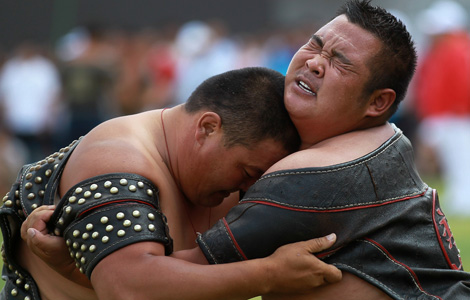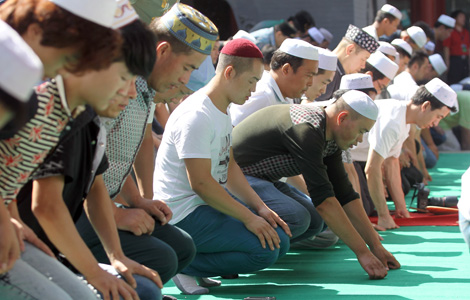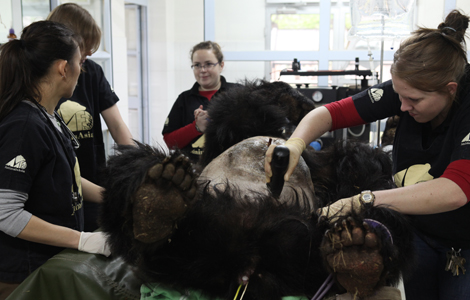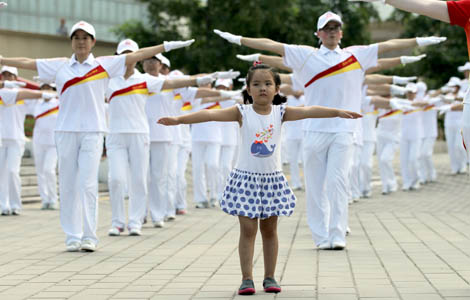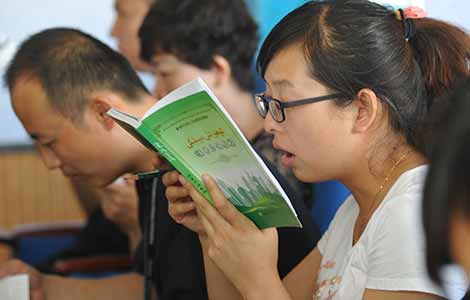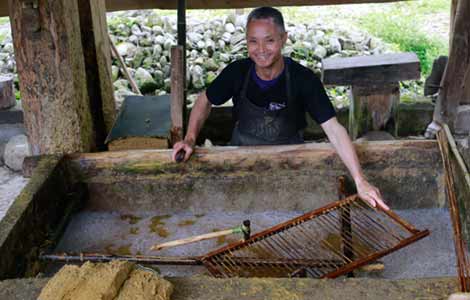A nuisance called superstition
Updated: 2013-08-09 07:25
By Liu Peng (China Daily)
|
||||||||
One of the salient principles of the Communist Party of China is that members should not have religious faith. By extension, it means Party and government officials, who are political elites and have been selected through a rigorous process, should not be superstitious.
Of course, a majority of Party officials are hard working and free of superstitious beliefs. But some of them have fallen prey to superstition and mysticism. Many media outlets have reported that quite a few officials believe in divine intervention, for which they seek the help from fortunetellers and "qigong masters", and in some cases appoint them as their advisors.
In some extreme cases, officials have even changed highway building or urban development plans on the advice of fortunetellers to invite good luck to further their careers. Such officials should know that it is unscientific, rather ludicrous, to ignore experts and seek the advice of clairvoyants and fortunetellers in such matters, let alone allow them to influence their decisions.
Some fortunetellers have become stars overnight. Wang Lin from Pingxiang, Jiangxi province, is one of them. After some celebrities and well-known entrepreneurs were seen visiting him and posted their photographs with him on their micro-blogs, this self-proclaimed "qigong master" drew the attention of the media and the public. Soon he was exposed as a trickster. As Abraham Lincoln said: You can fool some of the people all of the time, and all of the people some of time, but you cannot fool all of the people all of the time.
Wang's fall from "grace" has become fodder for the media, which are busy reporting how many senior officials, entrepreneurs and celebrities used to seek Wang's advice and how much money they paid him.
But the question is: How could so many "masters" like Wang flourish in the country? How could Wang and his ilk have attracted so many officials who are not supposed to have religious faith?
For almost 2,000 years, Confucianism ruled Chinese people's minds. The influence of Confucianism started fading when imperial rule weakened. Soon nationalism became the driving force for the majority of Chinese people, followed quickly by communism, which exhorts people to discard religion and superstition, and be loyal to the ideals of the Party.
Some officials, however, have betrayed the Party's principles by seeking and executing the advice of clairvoyants, fortunetellers and "qigong masters". Worse, they have done so out of greed - to gain promotions, exercise more power and make more money. In particular, corrupt officials have sought the help of so-called masters to save their skin and keep on making money the illegal way.
Corrupt officials know the punishment awaiting them if they are caught. So to evade exposure, they seek the advice of fortunetellers and "qigong masters". Instead of changing their ways and giving up their ill-gotten wealth, these officials seek shelter in "qigong" and mysticism.
Such officials believe fortunetellers and "qigong masters" can seek divine protection for them. Conversely, fortunetellers and "qigong masters" need the protection of officials to ply their trade in falsity and deceit to continue making money. It's a perfect example of "you scratch my back and I'll scratch yours".
The nexus between some corrupt officials and fortunetellers and "qigong masters" has increased corruption, causing more harm to society. Besides, fortunetellers and "qigong masters" use their association with officials, entrepreneurs and celebrities to attract other people to make more money. As a result, a vicious circle is formed: fortunetellers use their social connections to concoct more falsehoods, and the more "fairytales" they tell, the more people they attract.
Some of these so-called masters become so powerful that they can influence many public projects. Wang may be a crook, but his crime is less serious than those of some Party officials who used him (and people like him) to further their career (both legal and illegal) to make more money.
After Wang was exposed, several photographs were found in his house revealing his association with some very high-ranking officials, such as former railway minister Liu Zhijun, who profess their loyalty to the Party in public but continue with their dirty work behind the scene. Such people need to be exposed and punished for their actions.
The author is a scholar on religions studies with Chinese Academy of Social Sciences.
(China Daily USA 08/09/2013 page16)
Most Viewed
Editor's Picks

|

|

|

|

|

|
Today's Top News
Pharm giant says it takes bribery claims 'seriously'
China's inflation rises 2.7% in July
Budget show cuts in provincial spending
US realty market 'connects dots' with China buyers
Pharm giant suspected of bribery
Economic prospects improved
Beijing rejects protest over patrol
China Unicom tests 4G network
US Weekly

|

|

